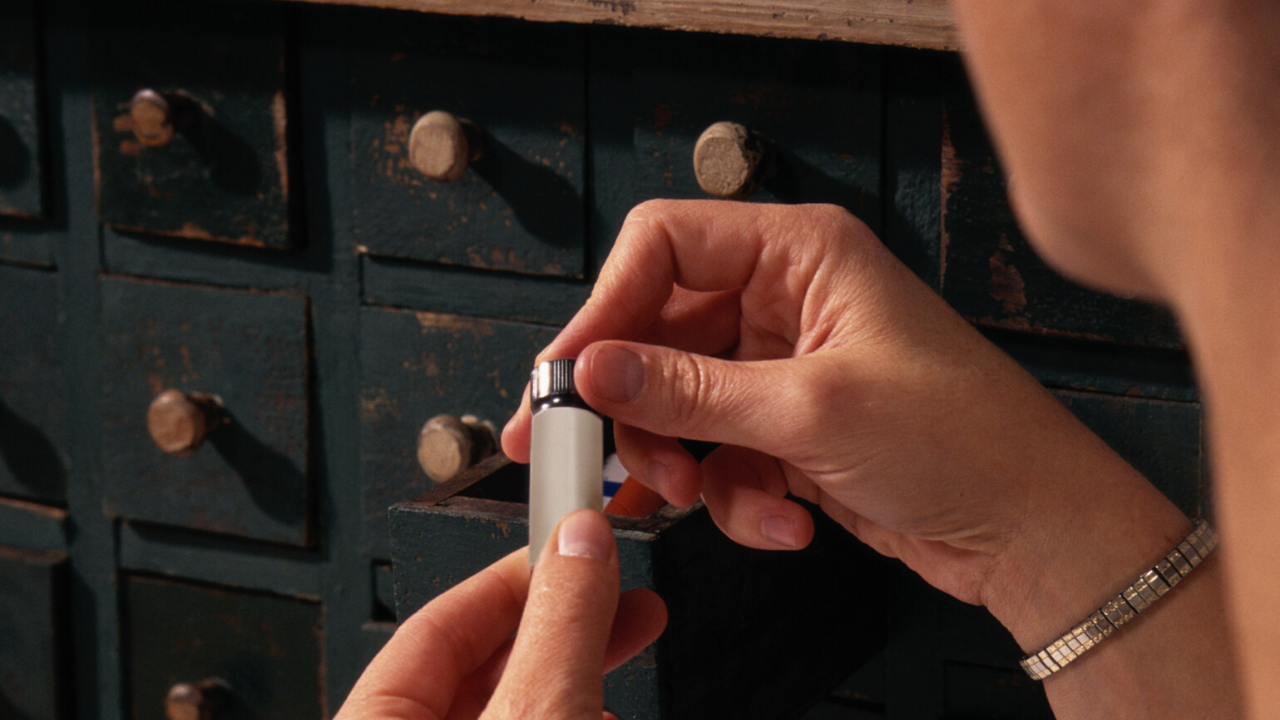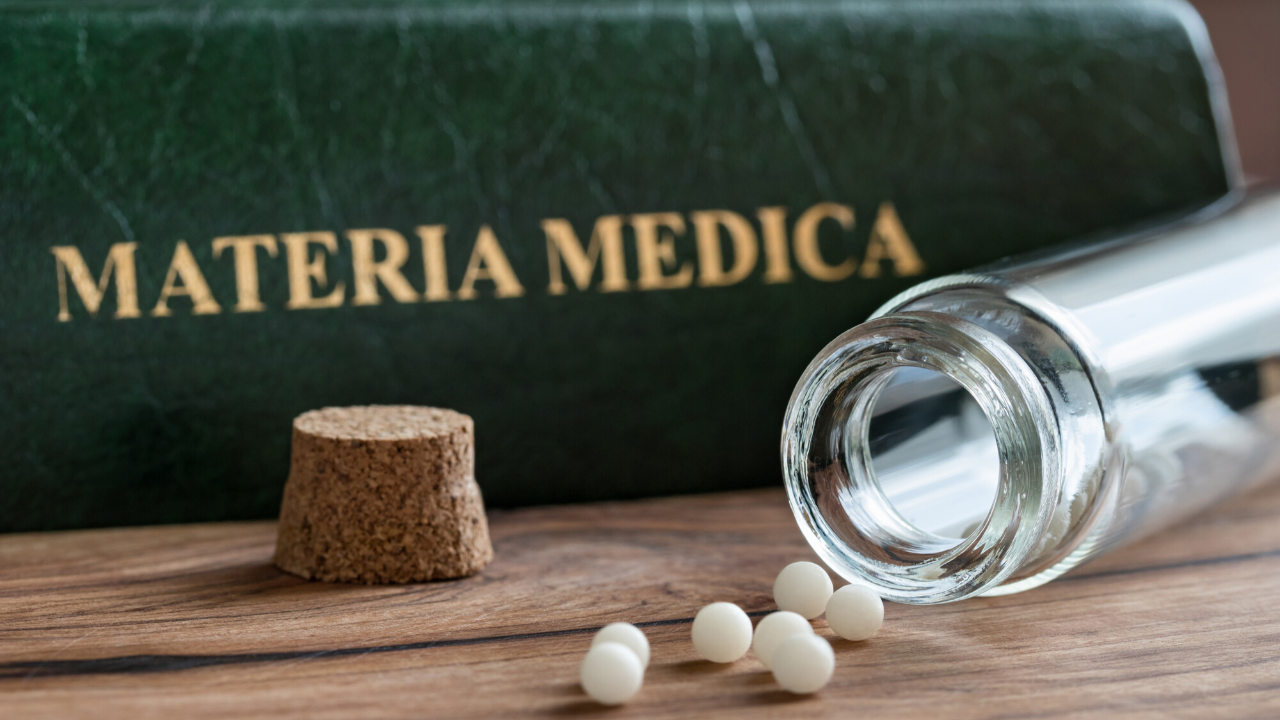Homeopathy Tips Newsletter
The Process of Illness: Part 1

Homeopathy is one of the most powerful healing modalities. But the truth is, homeopathy does not heal us. We heal ourselves. In order to understand the healing process, we need to better understand the process of illness. Why do we get sick the way we do? Jung stated, "We are not here to heal our illnesses. Our illnesses are here to heal us." We must understand the biology of illness and disease to better understand the process of healing. After all, if we do not understand what is asking to be healed, we will never find a remedy to inspire healing. So let's dive into the process of illness.
Our biology has evolved over many thousands of years. In this evolution, we are programmed for survival. Survival is imprinted into our brains. When we feel a threat on any level, mental, emotional, or physical, we use our mind to try to solve the problem of our survival. If the threat is not very intense or of short duration, we will find a solution and this does not get recorded in the brain. If...
What Happens When We Respond to a Remedy

Homeopaths often refer to the remedy as "working" when we have a positive response. But what is actually happening when we take a remedy and it works? This is something I find my students often have a hard time explaining and understanding clearly. So let's walk through the process of responding to a remedy and why it even works.
We must first set the groundwork for a remedy’s action by understanding the nature of the vital force. We are spiritual beings with a physical body. This spiritual aspect is immaterial and animates the physical. Without the spiritual vital force, there is no life energy and death is the result. This immaterial vital force is responsible for all consciousness, and sensations experienced by the physical body including mind and emotions.
All dis-ease is a result of a disturbance in the vital force. This is a spiritual dis-ease that eventually is made known in the physical body. The spiritual dis-ease is first known through our mind and how we see our world or r...
The Challenge for New Homeopaths

Most new students of homeopathy want to know that the money and time they have spent on their education will bring them success. The common questions are, "Will I get a job? Will I make money? How much will I make?" and so on. These are all very good questions but the real answer to all of them is simple; it depends on you.
Homeopathy and alternative medicine are the fastest-growing segments of health care spending. As more and more people become discouraged by the limitations and failures of our allopathic healthcare system, they are turning to alternatives that are safe and effective. Homeopathy offers the safest and, when prescribed correctly, the most effective form of medicine on the planet. There is probably no better time in history to become a homeopath and follow that internal call to help others, but this does not come without its own challenges.
When a person decides to study allopathic medicine, there is a system of education that is built into our educational system alre...
Homeopathy for Hypertension

One of the biggest health threats to people of developed countries is hypertension or abnormally high blood pressure. This is one area that homeopathy can help with but in an entirely different way than the allopathic approach of drug therapy.
Blood pressure varies by time of day and by individual to individual. It is normal for fluctuations in blood pressure to occur in response to many different changes in our world. Stress is the greatest cause of abnormal blood pressure and is often a silent response until we are made aware of it.
- Normal blood pressure readings are below 130 over 85.
- High normal readings are from 130-139 over 85-89.
- Stage I mild Hypertension is 140-159 over 90-99.
- Stage II Moderate Hypertension is 160-179 over 100-109.
- Stage III Severe Hypertension is 180 or higher over 110 or higher.
Complications as a result of hypertension can be severe and accumulate over time. Individuals with primary hypertension (hypertension without a known cause, which comprise ...
Treating Yourself

One might think that because you are a homeopath that you would be the best observer of yourself. This could very well be true if we are clear about our suffering and what the most optimum state of health is. In order to treat anyone, the homeopath must know health from dis-ease. But sometimes this is more difficult to see in ourselves than it is to see in others.
The more a homeopath has experience with others, the more they will know themselves. This happens because we learn better as time passes what is health and what is dis-ease. Homeopaths can only successfully treat those individuals that are sicker than themselves. This is because if a person who is the client is healthier than the homeopath, the homeopath will not be able to see beyond his own dis-ease to perceive the dis-ease of the healthier individual.
When we suffer, it feels normal to feel how we feel. It can be often that we suffer and do not even know it. We may be completely unaware of our own process that is keeping...
Classification of Constitutions

One subject that gets asked about a lot is constitutional types. I find that there is a great assumption in modern homeopathy to classify certain types of individuals into “constitutional types.” Several authors have written extensively about this and painted many pictures about what Sulphur or Lycopodium or Natrum Muriaticaum “constitutional types” look like. I find this very dangerous in homeopathy.
Every case before us stands on its own unique set of symptoms. No two cases are the same even if the same remedy is given. To create a box or group to file certain attributes of a remedy together and then fit a person to the box is not homeopathy. Learning any system that does this is very dangerous and leads to poor homeopathic prescribing.
I was studying from Kent’s Lesser Writings and he said it best:
“Why should we attempt to classify constitutions as an aid in prescribing? Every individual is a constitution, and no two sick persons can be classified as of the same class to the sat...
Homeopathy for Asthma

Asthma affects about 19 million people yearly in the United States. It is a very serious condition that can be fatal. It requires the expertise of a skilled physician to treat it correctly. The allopathic treatment of asthma rarely cures but can often prevent death due to the constriction of airways and suffocation. It is a delicate road to healing asthma with homeopathy but the path is one that can help a person heal at their source.
Asthma is a condition of the constriction of the airways in response to certain stimuli. The airways are made up of a smooth outer muscle layer, and a middle and inner layer that form the airway. During an attack, there is a spasm of the outer layer and inflammation in the middle and inner layer that swells and narrows the airway so it becomes increasingly difficult to breathe. Often, because of the inflammation, a mucous plug can be formed that can totally block airflow. This is potentially a fatal condition.
In a more severe attack, the person is unab...
Remedy Relationships

It is important to know about the remedies in our Materia Medica and their relationships. I often see a case improve dramatically with a given remedy but not go on to cure. With knowledge of remedy relationships, some of the more perplexing cases can be improved by giving a complementary remedy to the first remedy prescribed. It must always be that this second remedy is indicated and not just given routinely.
When you see a child with recurrent high fevers that yield to Belladonna but the fevers continue to reoccur, then often Calcarea Carbonica will be the chronic remedy for these acute states.
Natrum Muriaticum sustains the same chronic relationships to Apis and Ignatia. It stands to reason since Natrum Muriaticum shares many common themes to both of them. One can see the relationship of the crystalline structure of Salt and the crystalline structure of the honeycomb and crystallize of honey. Often it will be difficult to tell the difference in skin eruptions that have a similar ap...
How to Avoid Chasing Symptoms

In the course of chronic prescribing, many symptoms can appear during an extended time of treatment. One mistake that the homeopath can make is to start chasing symptoms. This can lead to a very confusing picture of the disease and extend healing indefinitely for the client. Here are a few reminders that may help you to avoid this mistake.
When a remedy has been selected, we do not know how the vital force will respond until we are able to observe the response. In the evaluation of the response, it is critical that we understand what is being expressed. Many times, the vital force will produce many symptoms during this healing time and one of the most common mistakes is to try to treat each of them. Often, the client will come and beg for a remedy for the symptom. It is imperative we understand what is happening before we treat any symptom.
One possibility is a return of the old symptom and we commonly call this the aggravation. If the aggravation is mild and there is not too much su...
How Homeopathy Can Help With Stress

By far the most common complaint I receive from my clients is stress. It is a condition arising from daily life especially here in America where the pace of life is so very fast. It can also come from more unusual circumstances but is the result of the person being challenged in ways that they find harder to cope with. But homeopathy can help.
Most stress arises from issues of work, family, health, and money. These for the underlying conditions that cannot be corrected easily or quickly thus leading to stress. Most often the condition is outside of any direct control the person has in relation to the problem. Yet these conditions can cause great suffering when our relation to the problem does not bring the solution. Then the problem does not go away and seems to weigh the person down. This is our stress response. If their relationship to the problem could change, the problem would then change as well. It all has to do with our ability to manage our emotional response, anxiety, and fea...

